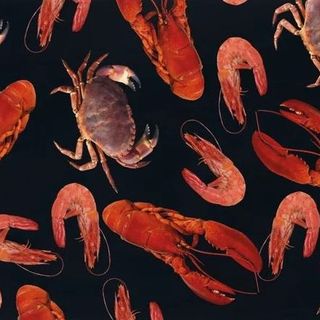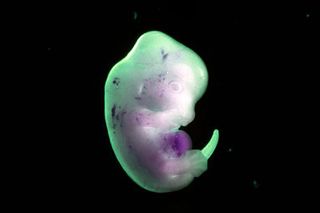
Japan Approves Research to Grow, Harvest Human Organs from Animal Embryos
Researchers have to terminate any animal embryo that develops more than 30% human brain tissue.

Japan — in what feels like a bizarre cross-promo for the even-more-bizarre film Cats — has approved laboratory research to develop human-mouse and human-rat hybrid embryos that will be allowed to develop until term, with the aim of growing human organs for people who require transplants, reports Nature.
It’s not the first time human-animal hybrid embryos have been approved for research purposes; the U.S. has previously allowed such research, though government funding for it was cut off four years ago, effectively capping that line of exploration. But no previous research has brought human-animal hybrid embryos — known as chimeras — to full development. Hiromitsu Nakauchi, the researcher leading the newly approved line of research, had attempted a similar experiment using sheep embryos in 2018, but at the end of 28 days (one-fifth of a full-term sheep’s gestation), few human cells remained in the embryos. Nakauchi has said this is because sheep are too genetically dissimilar to humans.
The new line of research will use mouse and rat embryos, species more genetically similar to humans. Later, Nakauchi, who is associated with both the University of Tokyo and Stanford University in the U.S., hopes to get approval for pig embryos, as well.
To develop these chimeras, researchers will use the CRISPR-Cas9 gene editing tool to delete genes that enable the growth of specific organs — for instance, the pancreas — from mouse and rat embryos. These edited embryos will then be injected with human pluripotent stem cells — the earliest stage of human tissue, before cells specialize by function (e.g. become skin cells, or neurons, or liver cells). In theory, these pluripotent stem cells will then fill the embryo’s edited gap, developing into its missing pancreas — but a human version — as the embryo grows in a surrogate animal. In 2017, Nakauchi and team successfully grew a mouse pancreas in a rat embryo using the same method; they then transplanted the mouse pancreas into a diabetic mouse; afterward, the mouse ceased to have diabetic symptoms.
Related on The Swaddle:
World’s First Gene‑Edited Babies Have Been Born in China, Researcher Claims
But human-animal hybrid experimentation always raises a note of warning. Nakauchi says his team will proceed with caution; initial forays will grow human-mouse and human-rat chimeras to near-term only.
“The number of human cells grown in the bodies of sheep is extremely small, like one in thousands or one in tens of thousands,” Nakauchi reportedly told The Asahi Shimbun, a Japanese newspaper, of his previous research. “At that level, an animal with a human face will never be born.”
First, tell that to the producers of Cats. (Please. It would be better for all of us.) Second, a human-animal hybrid with a human face is only the most extreme interpretation of ethical worries; after all, is a human-appearing face the only thing that makes humans, human? Other researchers and bioethicists raise the warning that human pluripotent stem cells are technically capable of developing into any type of human tissue, not just pancreas tissue. For this reason, Nakauchi’s team will terminate any chimera embryo whose brain develops more than 30% human tissue, according to Japanese guidelines, reports BigThink.
The new research has been approved by a committee of experts within Japan’s science ministry, following an overhaul to human-animal hybrid experiment guidelines earlier this year. The final approval from the ministry is expected in August.
Liesl Goecker is The Swaddle's managing editor.
Related


The Himalayas Are Set to Lose 66% of Their Ice by 2100
